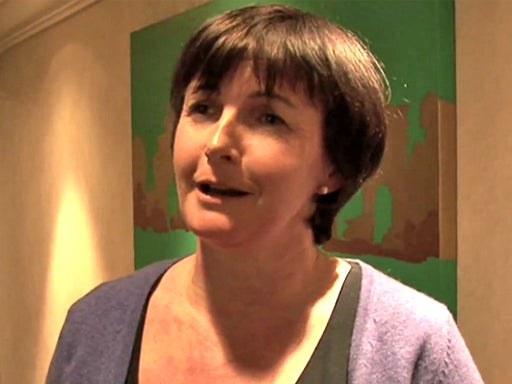Revealed: Serious Fraud Office chief who worked at home spent £100,000 on travel costs
Phillippa Williamson was allowed to run up bill in deal criticised as ‘quite astounding’ by MPs

Your support helps us to tell the story
From reproductive rights to climate change to Big Tech, The Independent is on the ground when the story is developing. Whether it's investigating the financials of Elon Musk's pro-Trump PAC or producing our latest documentary, 'The A Word', which shines a light on the American women fighting for reproductive rights, we know how important it is to parse out the facts from the messaging.
At such a critical moment in US history, we need reporters on the ground. Your donation allows us to keep sending journalists to speak to both sides of the story.
The Independent is trusted by Americans across the entire political spectrum. And unlike many other quality news outlets, we choose not to lock Americans out of our reporting and analysis with paywalls. We believe quality journalism should be available to everyone, paid for by those who can afford it.
Your support makes all the difference.Taxpayers spent £100,000 in travel and hotel costs for the former head of the Serious Fraud Office (SFO) after she was allowed a “quite astounding” deal enabling her to work part of the week from the Lake District, MPs said in a report.
Phillippa Williamson also received a pension top-up of more than £400,000, even though the arrangement had not been approved by Civil Service chiefs.
In a stinging report published today by the House of Commons Public Accounts Committee (PAC), MPs berate the SFO for presiding over a “catalogue of errors and poor judgement” in drawing up terms for senior staff. Ms Williamson, who stepped down as its chief executive in 2012 after four years, was responsible for the agency’s day-to-day operation.
However, she was authorised by the former SFO director, Richard Alderman, to work two days a week from her home in the Lake District. The taxpayer picked up the hotel and travel bills totalling £98,946 as she made the 550-mile round-trip each week for three days in the SFO’s central London headquarters.
Richard Bacon, a member of the PAC, said: “For the chief executive officer of an important public body such as the Serious Fraud Office to be granted such arrangements is quite astounding.” The MPs also accused Mr Alderman of displaying a “disregard for the proper use of taxpayers’ money” by agreeing severance packages for three senior staff, including Ms Williamson.
She received £464,905, including an enhancement of £407,000 to her pension pot, without permission being given for the deal. The MPs said there was no evidence that the redundancy package was approved by the Cabinet Office. Christian Bailes was awarded £437,167 when he stepped down as chief operating officer, while Ian McCall picked up £49,885 when he left as head of IT.
The MPs said: “The former director’s decisions on redundancy and severance packages showed a disregard for the proper use of taxpayers’ money. Mr Alderman failed to follow due process by deciding the amounts in special severance packages and by not seeking alternative placements for staff.
“He ignored legal advice available to him and did not gain the necessary Cabinet Office and Treasury approval for payments. He failed to comply with the principles that should underpin the use of public money.”
The committee published a letter that Mr Alderman sent to it days after a gruelling evidence session before it in which he admitted it was “justified” in criticising his actions and offered his “deep and unreserved apology”.
The report found that Mr Alderman’s actions and decisions took place amid a culture where external advice and scrutiny was “to be avoided wherever possible” and with an “apparent need for secrecy”. It said: “This catalogue of errors amounts to a case study in how not to run a public body... We look to the Cabinet Office and the Treasury for safeguards to ensure there is no repeat of this debacle.”
Join our commenting forum
Join thought-provoking conversations, follow other Independent readers and see their replies
Comments